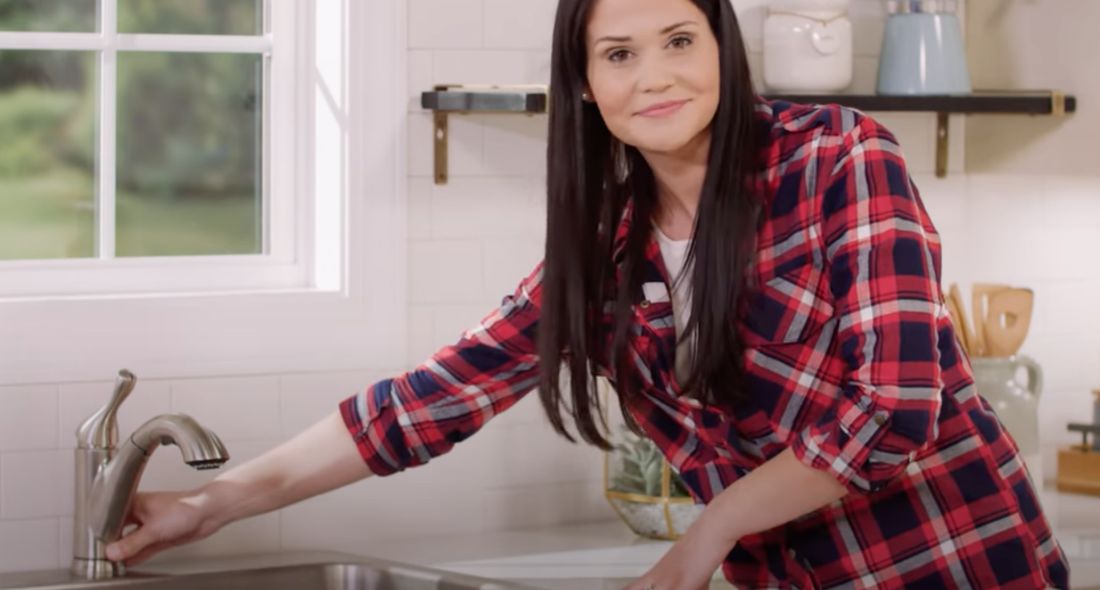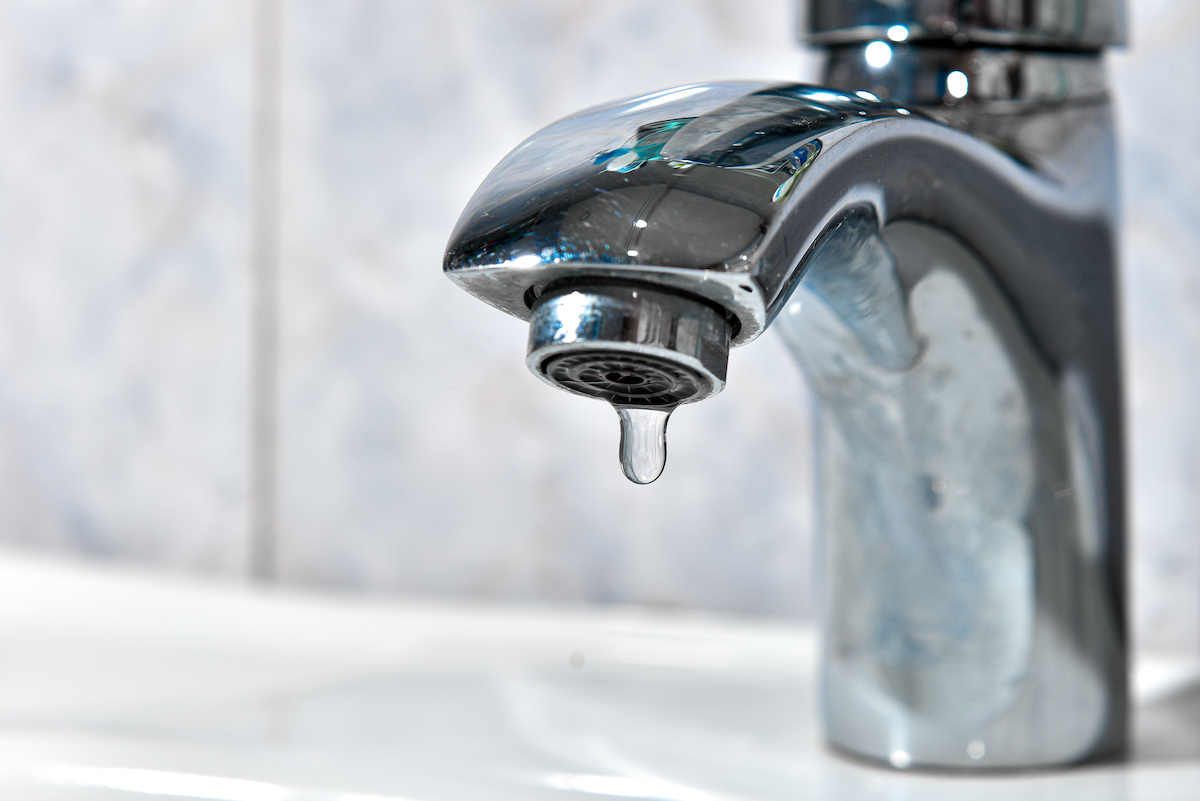When It's Necessary to Fix a Faulty Faucet
When It's Necessary to Fix a Faulty Faucet
Blog Article
This great article further down relating to Water Dripping from Faucet: Why and How to Fix is fairly insightful. Read on and make your own personal assumptions.

Dripping faucets might look like a minor inconvenience, but their impact surpasses simply the annoyance of the sound. From drainage to sustaining unnecessary financial costs and wellness dangers, disregarding a dripping tap can cause numerous repercussions. In this article, we'll look into why it's vital to address this usual home concern quickly and effectively.
Waste of Water
Environmental Influence
Dripping taps contribute substantially to water wastefulness. According to the Environmental Protection Agency (EPA), a solitary tap dripping at one drip per secondly can throw away greater than 3,000 gallons of water annually. This not just stress water sources however also influences ecosystems and wild animals dependent on them.
Financial Prices
Raised Water Bills
Past the environmental effect, trickling taps can inflate water costs considerably. The collected waste gradually translates into greater energy costs, which could have been avoided with prompt repair services.
Potential Residential Property Damage
In addition, extended trickling can cause harm to fixtures and surface areas surrounding the tap. Water build-up can trigger discoloration, deterioration, and even architectural issues if left ignored, resulting in additional fixing prices.
Health and wellness Concerns
Mold and Mold Development
The continuous existence of wetness from a dripping faucet produces an optimal environment for mold and mildew and mold development. These fungi not only jeopardize interior air top quality but additionally posture health and wellness risks, specifically for people with respiratory problems or allergic reactions.
Waterborne Diseases
Stagnant water in trickling taps can become a breeding ground for germs and other pathogens, enhancing the danger of waterborne conditions. Pollutants such as Legionella germs prosper in stationary water, potentially leading to significant diseases when consumed or inhaled.
Do it yourself vs. Specialist Repair service
Advantages and disadvantages of Do It Yourself Repair Work
While some might attempt to take care of a trickling faucet themselves, DIY repair services feature their own set of difficulties. Without appropriate expertise and devices, do it yourself attempts can worsen the concern or bring about insufficient fixings, lengthening the trouble.
Advantages of Working With a Specialist Plumber
Working with a specialist plumber makes sure that the underlying root cause of the dripping tap is resolved properly. Plumbing professionals have the know-how and devices to diagnose and fix faucet issues successfully, saving time and decreasing the risk of more damage.
Step-by-Step Overview to Repairing a Dripping Tap
Tools Required
Prior to attempting to take care of a dripping tap, gather the necessary devices, consisting of an adjustable wrench, screwdrivers, substitute components (such as washing machines or cartridges), and plumber's tape.
Common Tap Issues and Their Solutions
Determine the kind of faucet and the details issue triggering the drip. Usual problems consist of worn-out washing machines, corroded shutoff seats, or damaged O-rings. Describe supplier guidelines or on the internet tutorials for step-by-step guidance on repairs.
Safety nets
Regular Maintenance Tips
To avoid leaking taps, do routine upkeep such as cleaning aerators, examining for leakages, and changing damaged parts immediately. In addition, consider installing water-saving devices or upgrading to more efficient fixtures.
Importance of Prompt Repairs
Dealing with leaking faucets as soon as they're noticed prevents more water wastefulness and prospective damage, ultimately conserving both water and money in the long run.
Influence On Home Value
Assumption of Well-Maintained Home
Maintaining a property in good condition, consisting of dealing with upkeep issues like leaking taps, enhances its viewed worth and value amongst possible buyers or occupants.
Influence on Resale Worth
Properties with well-kept plumbing components, consisting of taps, command greater resale values in the real estate market. Dealing with dripping taps can contribute to a positive perception throughout residential or commercial property assessments and arrangements.
Ecological Duty
Specific Payment to Conservation
Taking responsibility for repairing dripping faucets straightens with more comprehensive initiatives toward water conservation and ecological sustainability. Every person's actions jointly make a substantial effect on maintaining valuable resources.
Lasting Living Practices
By prioritizing punctual repair services and adopting water-saving behaviors, individuals add to sustainable living techniques that benefit both existing and future generations.
Conclusion
Dealing with a trickling faucet exceeds plain benefit; it's an essential step towards preserving water, decreasing monetary prices, and safeguarding health and wellness and property. Whether via do it yourself repairs or professional support, acting to deal with trickling taps is a little yet impactful way to advertise accountable stewardship of resources and add to a healthier, a lot more sustainable future.
How to Fix a Leaky Faucet: Step-by-Step Repair Guide
A leaky faucet may seem like a simple annoyance, but if it's not fixed promptly, that leak could cost hundreds to potentially thousands. From water damage to mold, mildew, and high water bills, even a tiny leak can be catastrophic if left unattended. Damage like this can even affect the overall value of your home, so it's important to take the right approach for leaky faucet repair. You may need the help of a plumber in some cases, but we've got a few tips you can try on how to fix a leaky faucet before calling the pros.
Four Faucet Types
When you're learning how to fix a leaky faucet, the first step is knowing what kind of faucet you're working with! There are four common types.
Cartridge Faucets
Cartridge faucets come in one- or two-handled varieties. In one-handled cartridge faucets, hot and cold water combines in a single cartridge. In the two-handled versions, hot and cold water are controlled separately and mixed in the faucet.
Ball Faucets
Ball faucets have a single lever you push up and down to adjust the pressure and rotate to change the temperature. A slotted metal ball controls the amount of water allowed into the spout.
Compression Washer Faucets
They're the oldest type of faucet, but they're still used in many homes — especially older ones. Compression faucets have two separate handles that, when turned, raise or lower the washer that seals a water valve. This valve stops water from flowing through the faucet when it is turned off.
Disc Faucets
Disc faucets rarely need to be repaired due to their maintenance-free design. The water flow is controlled by two discs — the upper one raises and lowers against a fixed lower disc, creating a watertight seal. If your disc faucet starts leaking, you may need to replace the seals or clean residue buildup from the inlets.
Fixing a Leaky Faucet
Step 1: Turn Off the Water
Whether you're learning how to fix a leaky bathtub faucet or how to fix a leaky kitchen faucet, always turn off the water supply to your working area when you're fixing a leak. The last thing you want is a flood added to your list of things to fix.
Look for the shutoff valves below your sink or around the tub and turn them clockwise to stop the water flow. If your faucet doesn't have shutoff valves, you may need to turn off the water for the whole house. Check to make sure it's off by turning the faucet on. If nothing comes out, you're ready to start the repair.
Step 2: Take Apart the Faucet
How you disassemble your faucet depends on the type of fixture you have. You can use a flathead screwdriver to remove the caps on top of the handle or handles for cartridge and compression faucets. Inside, you should see handle screws. Unscrew these with a screwdriver to remove the handle.
Disc- and ball-style faucets will typically have an inlet screw near the handle, and removing that will reveal the interior of the faucet.
Detach the Valve Stem
For cartridge- and compression-style faucets, you'll see the inner valve stem or cartridge once you remove the faucet handles. If you have a compression faucet, unscrew the brass valve stem. If you have a cartridge faucet, pull out the cartridge. If your cartridge has been in place for a while, it may require some tools or extra force to remove it due to mineral deposits.
Examine and Replace Parts
Once you've removed the parts, check them out to confirm what needs to be replaced. You may see corroded rubber washers, O-rings, stems, or cartridges. On a ball-style faucet, check the seats and springs for damage.
If you need to repair a leaky disc faucet, check the inlet and seals on the lower disc.
Once you determine what parts must be replaced, visit your local hardware store. Bring the damaged parts with you to ensure you can purchase the correct components to replace them.
Clean Valves and Faucet Cavity
If you've removed a stem or cartridge, you may notice mineral buildup in the faucet's threads. Use white vinegar to clean the valve seat by soaking it for a few minutes, then scrub it away with a soft toothbrush and rinse with warm water. You can also clean the interior of the faucet in the same way.
Reassemble the Faucet
Once your faucet is cleaned and the required parts have been replaced, it's time to reassemble it. Put the pieces back together and slowly turn the water supply back on. Doing this slowly is crucial because too much initial water pressure can damage the new hardware you've just installed.
https://homewarranty.firstam.com/blog/how-to-fix-leaky-faucet

As a serious reader on Leaky Faucets: Why They Happen & What to Do About Them, I thought sharing that article was beneficial. Remember to take a moment to promote this content if you liked it. Thanks for your time spent reading it.
Report this page